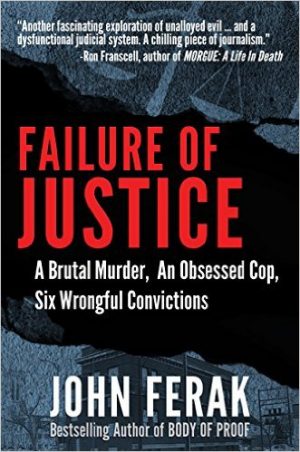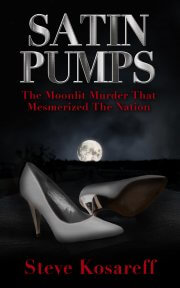John Ferak’s new book “FAILURE OF JUSTICE” about Beatrice, Nebraska brings to mind those strange days when we came face to face with the reality that five people had falsely confessed to participating in a murder.
That case confirmed a belief that I have held throughout my career as a prosecutor and as defense counsel.
Interrogation is not investigation.
The successful solicitation of a confession is no substitute for thorough investigation and careful evidence collection. In other words, just because someone says they committed a crime does not mean that they actually did.
If there is no hard evidence to back it up, a confession is just so much talk.

Former Nebraska prosecutor Randy Ritnour had an instrumental role in overturning the convictions of the Beatrice 6.
A confession is viewed by some law enforcement officers as the bow that ties up an investigation and in fact is the main focus of investigative effort in a criminal case. They like confessions because a defendant’s statement can be offered as evidence in court, making the more difficult task of collecting additional evidence unnecessary.
Nothing could be farther from the truth.
Suspect statements are usually self-serving batches of malarkey served up to satisfy the officer that the suspect was either minimally involved or not at all responsible. The officer then plays a verbal cat and mouse game with the suspect to get at the truth, all the while hoping that the suspect won’t assert his right to remain silent and lawyer up.
At best, the suspect’s statement corroborates the officer’s theory of the case when compared with the witness statements and hard evidence collected.
In the Helen Wilson case, the Beatrice Police Department based their investigation on evidence collected and when the blood test of their prime suspect was mishandled by the laboratory, excluding their main suspect, the case went cold. The Sheriff’s Department follow up investigation relied almost entirely on a series of interrogations that were conducted in such a way as to lead the suspects to answers and responses that conformed to the investigator’s theory of the case.
A genuine eagerness on the part of the principal investigator resulted in comic Q & A sessions where the suspects were fed nearly every confidential detail of the case, ensuring that their statements would conform to the allegations of that investigator.

Burt Searcey, Gage County Sheriff’s deputy. Back in 1989, Searcey netted six arrests in Helen Wilson’s unsolved murder in Beatrice. An Attorney General’s Office task force later determined that Searcey’s theory of the murder was all wrong. Photo courtesy of Lincoln Journal Star
Alarmingly, the physical evidence collected by the Beatrice Police Department at the beginning of the case did not match the suspects nor the deputy Gage County sheriff investigator’s theories.
The result was a catastrophic miscarriage of justice on a scale greater than any other case in the nation’s history.
Order your copy of John Ferak’s true crime book on the Beatrice 6 case, FAILURE OF JUSTICE.





 Join our email list
Join our email list
Leave a Reply